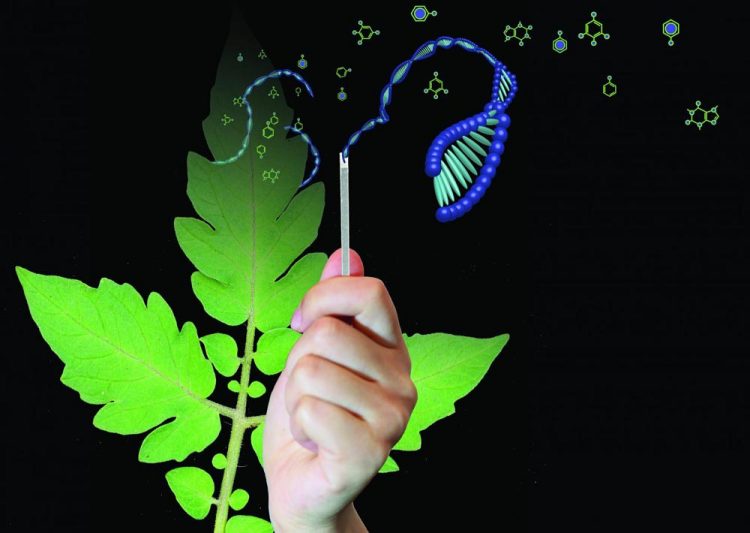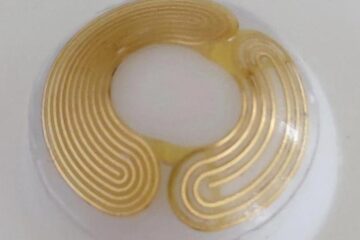UQ dipstick technology could revolutionize disease diagnosis

The dipstick can purify DNA and RNA from plant, animal and microbe samples in less than 30 seconds. Credit: Michael Mason Usage Restrictions: For use in association with this story
School of Agriculture and Food Sciences researcher Professor Jimmy Botella said the technology could extract DNA and RNA from living organisms in as little as 30 seconds without specialised equipment or personnel.
“We have successfully used the dipsticks in remote plantations in Papua New Guinea to diagnose sick trees, and have applied it to livestock, human samples, pathogens in food, and in detecting environmental risks such as E. coli-contaminated water,” he said.
“This technology will give people in developed and developing nations a new way of tackling a range of agricultural, health and environmental problems.”
Professor Botella, who led the research team with Dr Michael Mason, said current commercial kits could isolate DNA and RNA through a long and cumbersome process requiring specialised laboratory equipment that was impractical in the field.
The UQ research team initially developed the dipstick technology for particular plants and later found it could purify DNA from many agriculturally important species.
“We found it had much broader implications as it could be used to purify either DNA or RNA from human blood, viruses, fungi and bacterial pathogens from infected plants or animals,” Professor Botella said.
UQ's commercialisation company, UniQuest, has filed a patent application on the dipstick technology and is seeking commercial partners to help make it broadly available.
“Our technology eliminates the need for a specialised laboratory for sample preparation, and is a lot simpler, faster and cheaper than anything else available, making diagnostics accessible to everyone,” Professor Botella said.
“Our dipsticks, combined with other technologies developed by our group, mean the entire diagnostic process from sample collection to final result could be easily performed in a hospital, farm, hotel room or even a remote area such as a tropical jungle.”
###
The research behind the dipstick technology is published in PLOS Biology as Nucleic acid purification from plants, animals and microbes in under 30 seconds (doi 10.1371/journal.pbio.2003916).
Media Contact
All latest news from the category: Agricultural and Forestry Science
Newest articles

An epigenome editing toolkit to dissect the mechanisms of gene regulation
A study from the Hackett group at EMBL Rome led to the development of a powerful epigenetic editing technology, which unlocks the ability to precisely program chromatin modifications. Understanding how…

NASA selects UF mission to better track the Earth’s water and ice
NASA has selected a team of University of Florida aerospace engineers to pursue a groundbreaking $12 million mission aimed at improving the way we track changes in Earth’s structures, such…

‘Smart’ contact lenses could someday enable wireless glaucoma detection
Most people with early-stage glaucoma don’t know they have it, even though early treatment is key to reducing vision loss. While detecting a subtle increase in eye pressure helps doctors…





















